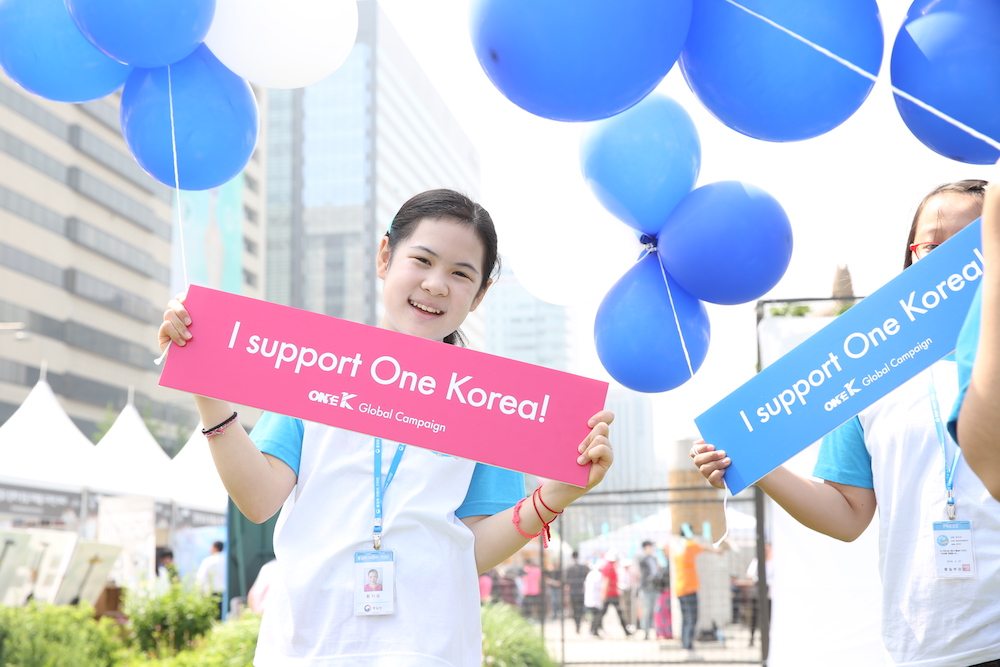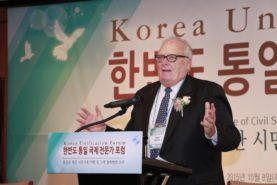As the current stand-off between the U.S. and North Korea continues to heat up, its threat to global security illustrates that high-level dialogue and inter-governmental diplomacy alone may not yield a solution. The crisis calls upon the people of the world to utilize alternative pathways like Track II, civil-society based efforts to de-escalate conflict and propose new possibilities.
Dr. Moon’s latest book, Korean Dream: A Vision for a Unified Korea, published this year in English, puts forth an out-of-the-box approach to Korean Unification based on a vision that transcends the over 70-year ideological division, and calls on the people of Tangun to rise up and meet their calling to become a model nation for the rest of the world. His proposal depends on a key ingredient – people power.
A tribute to Dr. Edwin Feulner on his 75th birthday quotes him saying, “I’m the congenital optimist in Washington and in the conservative movement.” Dr. Feulner attributes his enduring optimism on one thing, stated succinctly and profoundly by late U.S. President Ronald Reagan, “Trust the people.” Dr. Feulner is a renowned scholar and policy expert of Korea and Asia and a recipient of the Global Peace Awards at the Global Peace Convention 2017.
Placing trust and responsibility into the hands of the people is not always the quickest or easiest way. Sometimes it would seem more efficient to invest money into a system or government to find the solution.
However, there are moving accounts in history like the people’s movement that preceded the collapse of the Berlin wall, or the people’s movement for independence led by Mahatma Ghandi. These transformational moments in history were brought about through civil society engagement. Dr. Moon calls for an awakening of such a grassroots civil society movement that is driven by people of conscience who can reach past ideological, political divisions and work together towards a unifying vision that seeks for the benefit of all humanity.
The same article on Dr. Feulner’s optimism writes that change does not happen with “one mighty burst of legislation or a single dramatic event like the fall of the Berlin Wall” but through a series of discrete actions. It outlines the responsibilities required of each individual to sustain a vibrant and ethical civil society that drives positive change.
- Thought leaders continually seeking truth and generating new models of progress.
- Families equipping individuals with the values that enable them to take responsibility for themselves and their future families.
- Faith and community leaders acknowledging universal principles and working together to articulate a global ethic and encourage cooperation across lines of difference.
- Public servants acting in the interests of the greater good.
The situation on the Korean peninsula so often seems to move from bad to worse, but as history shows us, and optimists like Dr. Feulner and Dr. Moon remind us, the power of each individual, united by a powerful vision of peace and prosperity, can open the way for new possibilities.
Learn more about Global Peace Foundation chairman Dr. Hyun Jin Preston Moon’s ongoing efforts for peace and security in Northeast Asia: https://www.hyunjinmoon.com/korean-dream/


